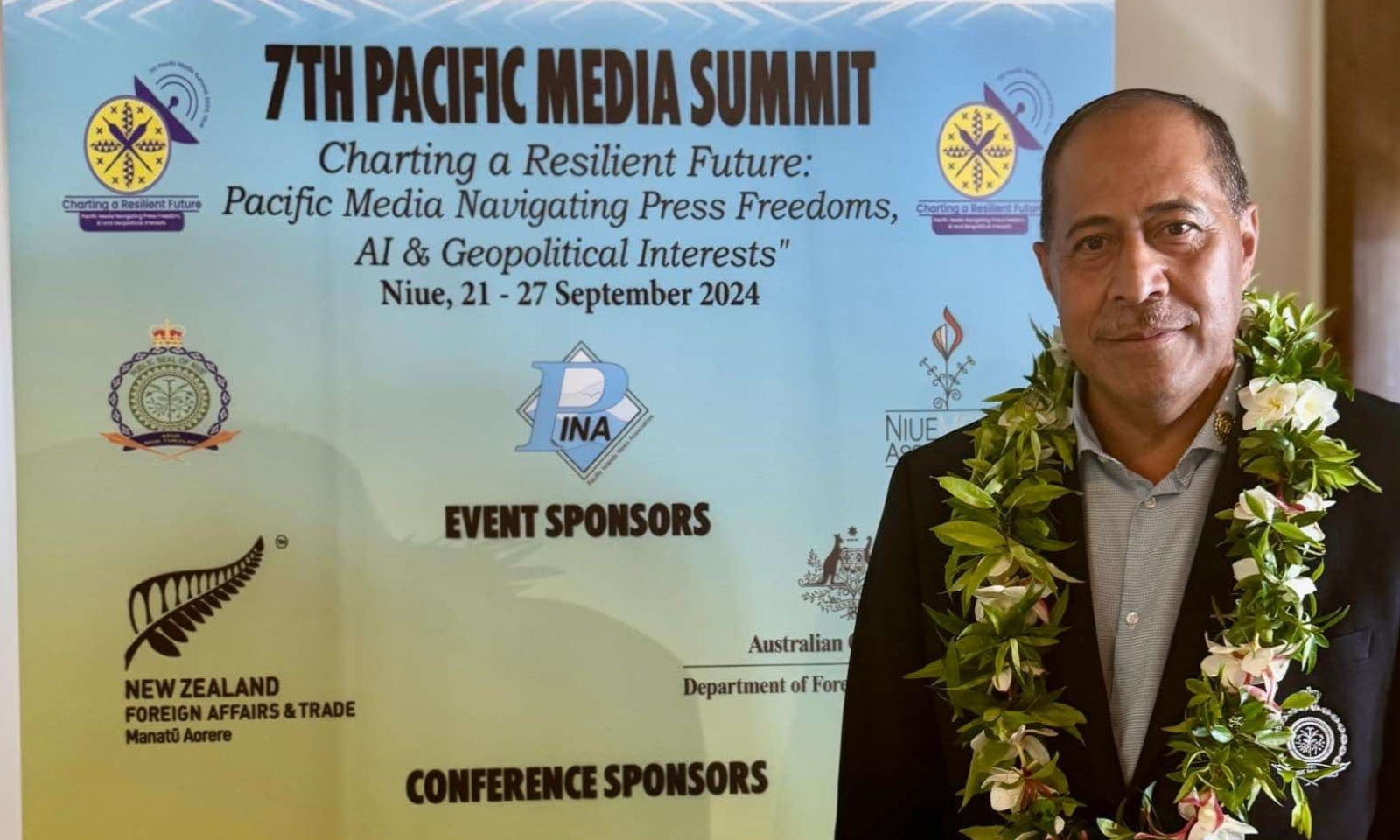

PMN CEO Don Mann says the right and ability for media to operate as part of a free and functioning democratic society is key.
Photo/Supplied
A free press for the Pacific
Media executives and newsmakers discuss journalism in the face of adversity at the recent Pacific Islands News Association summit in Niue.



Sāmoa confirms district office leaders as PM defends appointments after bribery ruling

Family ties and high-stakes splashes drive the third Z MANU WORLD CHAMPS

‘I don’t want that happening to anyone else’: All Black on losing his brother to drowning


Sāmoa confirms district office leaders as PM defends appointments after bribery ruling

Family ties and high-stakes splashes drive the third Z MANU WORLD CHAMPS
Like every media gathering, the 7th Pacific Islands News Association (PINA) Summit in Niue last week focused on press freedom, resilience, and the future of journalism in the region.
Industry executives and newsmakers discussed artificial intelligence, media freedom, and geopolitical interests, among other things at the weeklong summit in Alofi.
The PINA Summit also saw the first release of the Pacific Islands Media Freedom Index on 12 Pacific countries from a scale of one to five.
Watch Don Mann's full interview below:
The highest rated were Palau and Niue which came in at 4.2 and 4.0 respectively, and the two lowest rated were Papua New Guinea and Nauru which received 2.4 and 2.2.
Pacific Media Network (PMN) chief executive Donn Mann was also there and he told Pacific Mornings' host William Terite that this year's PINA meeting was heavily focused on the resilience of news media.
“Media freedom, the right and the ability for media to operate as part of a free and functioning democratic society has been a key theme right across the whole week. It's been under the headline banner of resilience for media entities in the Pacific region.
“There's been deep dives and talanoa into discussions like freedom, corruption, and also women in media.
“There are issues such as the use of artificial intelligence or the rise of artificial intelligence. All under the banner of resilience for media organisations across the Pacific region.”
A report entitled For Us, By Us released in Niue, interviewed 73 media executives and journalists from 14 countries.
The inaugural 2023 Pacific Media Freedom Index highlighted the region's industry and journalists facing significant economic and political pressures, bribes and corruption, as well as self-censorship.
According to Mann, Pacific news media can't be defined with a simple answer.
Still, the Pacific Islands Media Freedom Index is a great baseline for visualising the freedom of Pacific media, he said.
“The Pacific Islands Media Freedom Index, which was released at the conference, it was a piece of work by an organisation called Internews.

Prime Minister of Niue Hon. Dalton Tagelagi opened the 7th PINA Summit held in Alofi. Photo/Government of Niue
“They developed this media freedom index. It's kind of a baseline measure of ranking Pacific Island nations and their experience in relation to freedom of media.
“There's been a long-standing global index, you know, probably in more developed countries, but this is the first time in the Pacific region.
“I think the nice thing about this piece of work by Internews is at least there's a baseline here and a discussion point and a starting point on media freedom in the Pacific.”
Mann says it's important to hold conferences like PINA to build connections and relationships with other media organisations covering the Pacific.
“There's something for everyone, and it's just up to the organisation and the individual to find what's in it for them.
“As the chief executive of Pacific Media Network, I think about our 10 language shows. The obvious thing to draw from that is that we should have 10 strong relationships with the in-country media that correlate with our 10 language shows.
“I think it's important for PMN to be here, to be able to sit face-to-face with members of the media and of the communities that we serve.
“There's no point in us holding ourselves up to be Pacific Media Network and serving communities if we don't have in-country relationships. So, for me, for that alone, it's worth being here.”